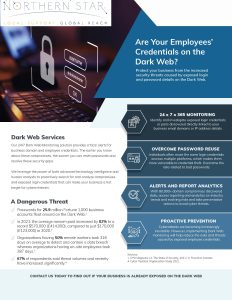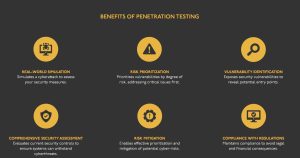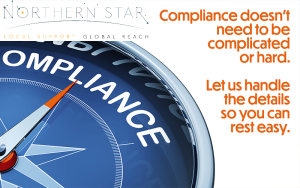
Part 1
Small business owners might feel safe from cyber-attacks based on the fact that they are less visible. After all, wouldn’t hackers want to target the big businesses with all the money? According to Symantec’s report, no, they wouldn’t.
In fact, the number of cyber-attacks targeting small businesses in 2016 made up 43% of the total number of attacks, and this is on a global scale. More alarmingly, this number is up from a mere 18% recorded in 2011.
But, why have small businesses become such a target? Well, the truth is that hackers don’t have particular agendas. They go after any business that is vulnerable enough to be hacked.
So, with this in mind, is your business’s cyber-security reliable? And, if not, how can you prevent cyber-attacks on your small business?
How to Prevent Cyber-Attacks on Your Small Business Network
1. Knowledge
Phishing attacks can bring down entire companies. In fact, 60% of businesses victimised by hackers close within 6 months. And all it takes is one employee opening an email containing malware.
Because of this, one of the best ways to prevent cyber-attacks is to educate your employees as to the risks of opening certain emails or following suspicious links. If your employees know exactly what to look out for, they’ll have an easier time identifying possible cyber-attacks and might minimise their potential for becoming the victims of such attacks.
2. Better Passwords
You might be up to your ears in the latest software to prevent attacks, but, if your employees are picking simple passwords, it’ll do you no good. Software won’t be able to help you if hackers can simply guess your passwords and gain access to your system.
Password complexity is especially important if you are using a system like LastPass, which allows access to a variety of sites and servers all from a single password.
Fortunately, LastPass offers a password generator, which creates a completely unique, random password. This is a good idea in all cases, even if your business doesn’t use password managers. Sites like these 5 password generators allow your employees to create passwords that are nigh un-hackable.
3. Fewer Personal Devices
Many small businesses are able to keep their operational costs down by allowing (or asking) their employees to use their own laptops, tablets, and smartphones for business purposes. This is referred to by some as BYOD (Bring Your Own Devices) and may be a sentiment to which you can relate as a small business owner.
The problem with this is, of course, that you have less control over the content which is accessed on these devices. While you may be able to restrict access to certain sites on an office device, you can’t do the same on an employee’s personal device. This means that your company’s sensitive information might be easier to access by hackers.
It might not be an easy task, but the best way to avoid placing your company’s data at risk through personal devices is to limit their use. Try to implement company devices, which you can monitor and control more easily.
Internet Security Starts at Home
The way your employees behave online can influence the vulnerability of your business to cyber-attacks. These are just a few of the ways in which you can help your employees conduct safer online behaviour. For more information get it in touch with our IT support team in NY.
Check back in with us for the second part of this look at cyber-security, in which we’ll look at more tips for securing your small business network.
Part 2
When it comes to cyber-attacks, no business is too small to be hacked. 2016 saw the targeted number of small businesses rise dramatically, which hurt many of them beyond repair.
In Part 1 we looked at how you can increase your company’s network security with help from your employees. Now, let us look at how you can secure your network from within.
5 Ways to Increase Network Security
1. Mobile Security
Scaling back on the BYOD (Bring Your Own Devices) trend is definitely a good way to limit the exposure of sensitive business data to hackers’ channels. However, if your team is out on the road, you are never going to be able to completely curb the use of personal devices for business purposes.
But, there are ways to increase security on mobile devices. These could include the installation of anti-virus software, data monitoring, and the introduction of an acceptable use policy.
2. Encryption
Encryption used to be viewed with a level of caution based on the fact that it was quite technical and thus difficult to implement in an office of ranging IT skills. However, the technology is increasingly becoming more user-friendly, which is making it a viable form of security for companies across the board.
3. Cloud Technology
While the cloud hasn’t exactly been iron-clad in the past (considering the well-publicised celebrity image leak), it is still safer than keeping valuable information in on-site servers. Moreover, the cloud offers a valuable back-up option just in case your data is compromised.
The apparent vulnerability of the cloud that may have led to the aforementioned leak is easily avoided through encryption and secure password generation.
4. Updates
It goes without saying that your business’s anti-virus and anti-malware should be updated on a regular basis. But, in addition, you should encourage your employees to frequently update the software that these security measures protect.
Unlike the protection software, which updates and scans automatically, operating systems sometimes ask their users whether they would like to update. And, since they can hamper a device’s performance, many users brush these updates under the rug. However, keeping an operating system updated ensures that all protection software can function to the best of its ability.
5. Support
Possibly the best way for small businesses to stay abreast of network security is to hire a private support and security service. This is especially beneficial if your business has a smaller staff and can’t manage the constant need to supervise employee online practices.
Security services ensure that your company is always protected from the latest threats, phishing scams, and malicious attacks. This means that you can rest assured that your own data, as well as your clients’ data, is secure.
The Task of Staying Secure Is Never Complete
The tips that we have covered above will certainly help your small business boost its network security. But, even with generated passwords, safer personal devices, data backups, and encryption, you can’t sit back and relax.
Cyber-criminals are always looking for new ways to get their hands on businesses’ money, meaning small businesses must always be looking at strengthening their security. But, if approached properly, this is absolutely possible.
















